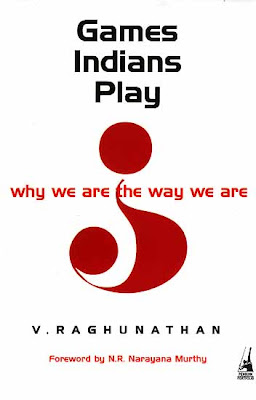'Ji Huzur!' to 'Whats up dude?'
Scene 1: Government office, Erode, Tamilnadu
The government officer gets out of the car, a peon goes and opens his door. He is wearing a white color dress and says 'Vanakkam Aiya' (Ji Huzur) and bows his head towards his superior.He carries his suit case and leaves his superior at his room and stands behind him as a salve.Here the work culture is of '17th century' (British style)
Scene 2: Manufacturing firm, Chennnai
All employees come on time and made to work very hard. They hardly sit and work.They call their superious 'Sir' but no bowing head.Here the work culture is of '18th century' (Industrial revolution style)
Scene 3: Sofware firm, Bangalore
Engineer walks in jean and T-shirt and watches his manager is walking in the floor.This 25 year old guy says 'Whats up dude? Did you see Sensex is taking 250 points today?' and the manager replies 'Yep! All my Mid-caps are screwed'. Here is the work culture of 20th Century (Knowledge worker)
Based on my experience and talking to some of my friends we cannot see all these scenes happening in any country other than India.The question goes 'Why only in India?'.To explain let us take the example of two majort styles of work culture in the world.
- Macro Management: This is introduced mainly by Americans. This is basically formed based on 'Managing by objective' where the organization and the employee believe and trust each other and they work in an informal,free environment. This is derived from the american society's principle 'Independence and Freedom'
- Micro management: This is introduced mainly by Japanese's. This is created after the second world war when Japan was bombed. They wanted to build a country and wanted to work very hard.Since that era belonged to manufacturing they introduced tight and strict work culture.The result you can see 'Made in Japan' eveywhere today.
In the above mentioned theories you can see each style adopted a 'Theme' and designed the management principles based on their 'society' and 'culture'. That's the main reason irrespective of the styles both methods are successful in their own countries. If you try viceversa it will fail miserably cut to India. We are no-where in this case.None of the above mentioned scenes and the work culture prevailing them belong to ours.We derive pre-independence work culture from 'British',post-independence work culture from 'Japan' and post-reforms work culture from 'America'. At the same time because of our so called 'flexibility' and 'adaptability' all these scenes exist together and 'somehow' it works.And that's the very reason you cannot see 'Made in India' products anywhere.
Why we have been so adaptable? Which particular work culture will suite us? Can we design a work culture of our own and practice in all the scenes mentioned above? If it can be designed what will be the 'theme'? These are the questions that are lingering in my mind and I am in the process of finding an answer. I am half way through will post a separate blog for the same.

Comments